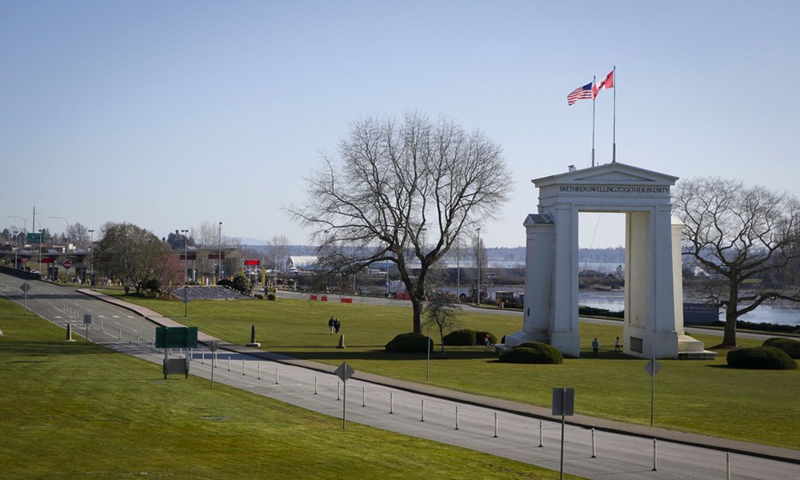Canadian Prime Minister Justin Trudeau said Tuesday that non-essential travelers entering Canada through the Canada-U.S. border will have to provide proof of a negative COVID-19 test from next week.
“As of February 15th, when you return to Canada through a land border, you’ll need to show a 72-hour PCR test, just like air travel,” Trudeau said at his press conference in Ottawa.
Should Canadians or permanent residents not be able to provide that test result, they could face severe penalties, including fines of up to 3,000 Canadian dollars per person.
Canada-U.S. border has been closed to non-essential travel since last March.
Trudeau said his government will also be implementing new measures to ensure extensive follow up by Health Canada to ensure they are getting tested and properly quarantining.
“What we can do is in cases of no test to show [is] apply a stiff penalty, a fine and demand and ensure a rapid and complete followup to make sure that they are getting tested, that they are being properly quarantined, that they are not putting at risk the safety of other Canadians by returning home without a clear negative test,” Trudeau said.
The new measure comes more than a month after Trudeau announced that air travelers will need proof of negative polymerase chain reaction tests three days before boarding their flights home.
Inbound air travelers need to take a second test when arriving, then quarantine at a government-designated hotel for three days while awaiting their test results. All are at their own expense.
However, more people are coming into Canada via vehicle than on an airplane.
Data from the Canada Border Services Agency show that 2.9 million people, excluding essential truck drivers, entered through a land border crossing, while 2.4 million arrived by airplane since the end of last March.
As of Tuesday afternoon, Canada had reported a cumulative total of 810,166 cases of COVID-19 and 20,893 related deaths.
Empty road at the U.S. port of entry into Blaine of Washington State is seen at Douglas-Peace Arch border crossing in Surrey, Canada, March 20, 2020.(Photo: Xinhua)



